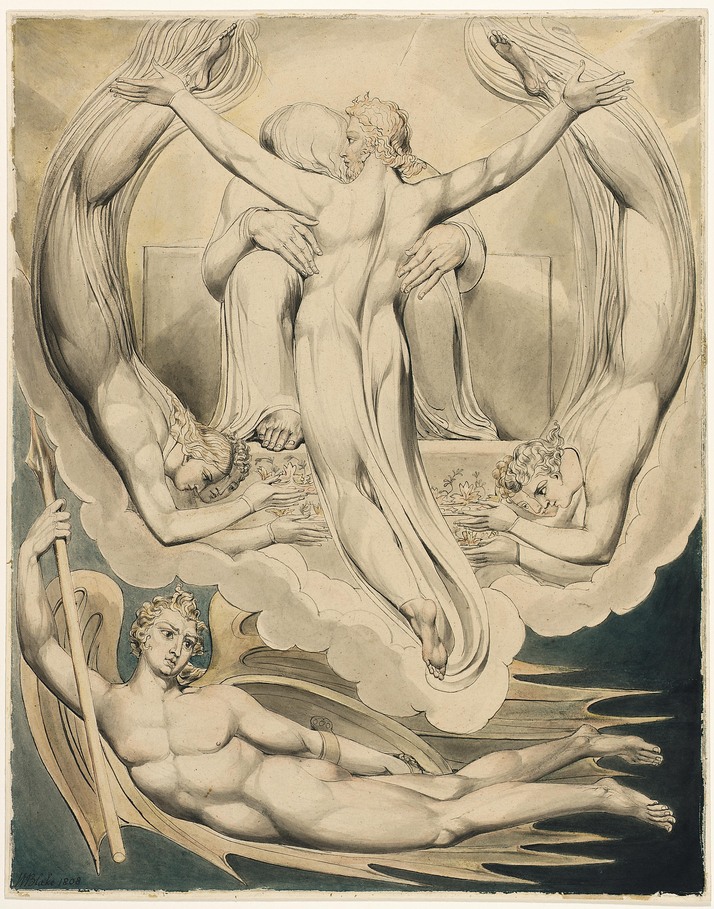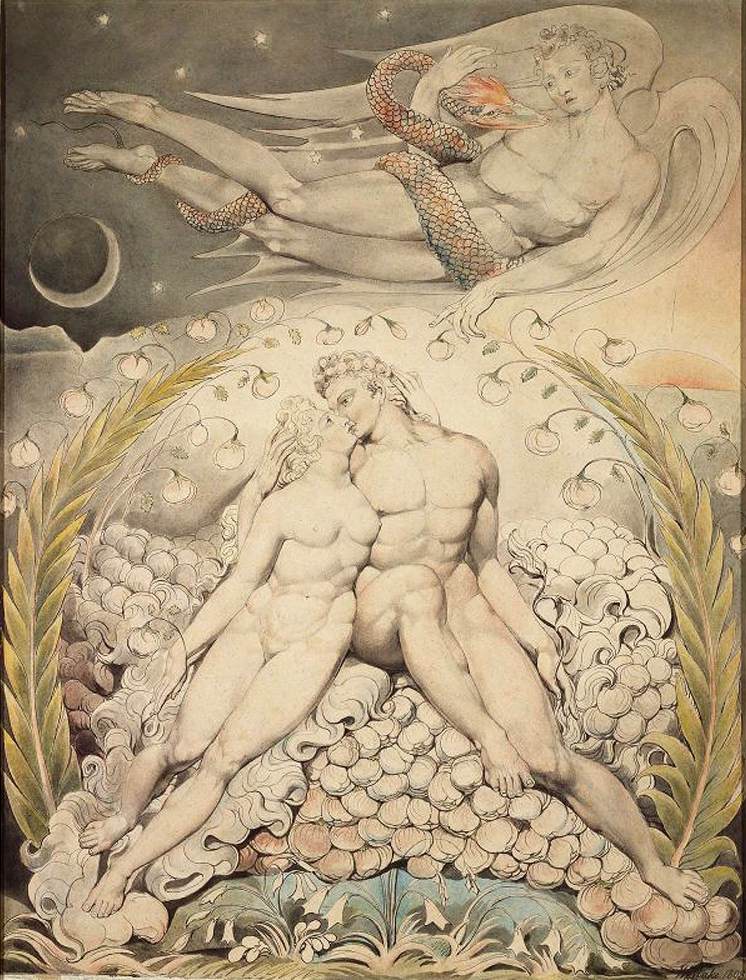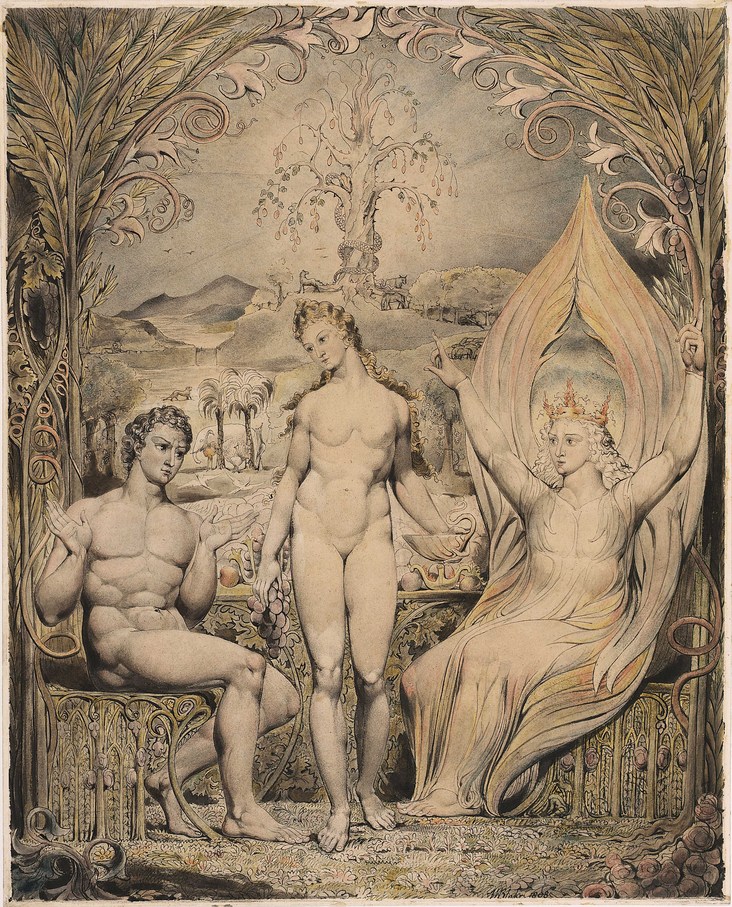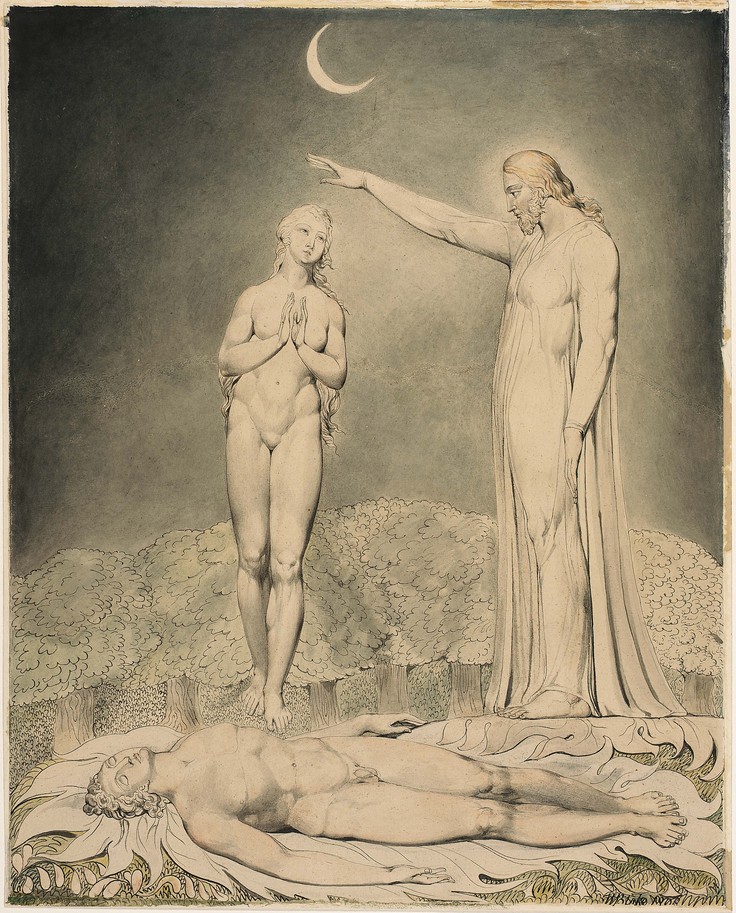 |
Harvard Art Museums/Fogg Museum Fallen Angels |
"O Fool could I forget the light that filled my bright spheres
Was a reflection of his face who calld me from the deep
I well remember for I heard the mild & holy voice
Saying O light spring up & shine & I sprang up from the deep
He gave to me a silver scepter & crownd me with a golden crown
& said Go forth & guide my Son who wanders on the ocean
I went not forth. I hid myself in black clouds of my wrath
I calld the stars around my feet in the night of councils dark
The stars threw down their spears & fled naked away
We fell. I siezd thee dark Urthona In my left hand falling
I siezd thee beauteous Luvah thou art faded like a flower
And like a lilly is thy wife Vala witherd by winds
When thou didst bear the golden cup at the immortal tables
Thy children smote their fiery wings crownd with the gold of heaven
PAGE 65
Thy pure feet stepd on the steps divine. too pure for other feet
And thy fair locks shadowd thine eyes from the divine effulgence
Then thou didst keep with Strong Urthona the living gates of heaven
But now thou art bound down with him even to the gates of hell"
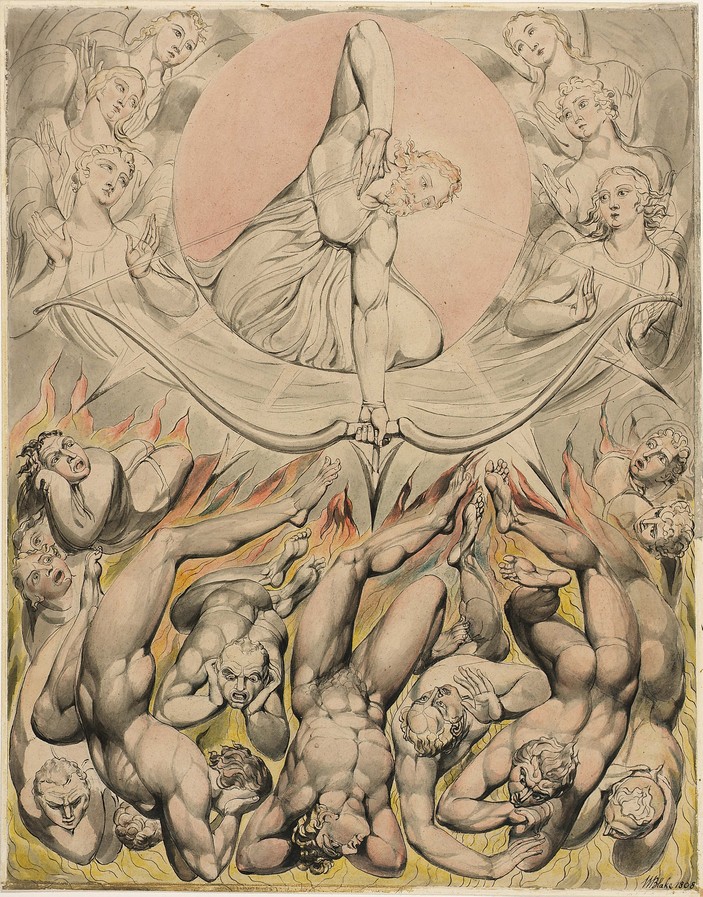 |
Wikipedia Commons Illustrations to Paradise Lost Rout of the Rebel Angels |
Stirred up with envy and revenge, deceived
The mother of mankind, what time his pride
Had cast him out from Heaven, with all his host
Of rebel angels, by whose aid aspiring
To set himself in glory above his peers,
He trusted to have equaled the most high,
If he opposed; and with ambitious aim
Against the throne and monarchy of God
Raised impious war in Heaven and battle proud
With vain attempt. Him the Almighty Power
Hurled headlong flaming from the ethereal sky
With hideous ruin and combustion down
To bottomless perdition, there to dwell
In adamantine chains and penal fire,
Who durst defy the Omnipotent to arms."
- Yet half his strength he put not forth, but checked
His thunder in mid volley; for he meant
Not to destroy, but root them out of Heaven:
The overthrown he raised, and as a herd
Of goats or timorous flock together thronged
Drove them before him thunder-struck, pursued
With terrors, and with furies, to the bounds
And crystal wall of Heaven; which, opening wide,
Rolled inward, and a spacious gap disclosed
Into the wasteful deep: The monstrous sight
Struck them with horror backward, but far worse
Urged them behind: Headlong themselves they threw
Down from the verge of Heaven; eternal wrath
Burnt after them to the bottomless pit.
866Paradise Regained, The Third Temptation
 |
Paradise Regained Christ Placed on the Pinnacle of the Temple |
We see Blake's portrayal of the Fall of Satan in the Illustrations to Milton's Paradise Regained. This work is dated 1816-20. Milton described the passage which occurs in Matthew 4:
[5] Then the devil taketh him up into the holy city, and setteth him on a pinnacle of the temple,
[6] And saith unto him, If thou be the Son of God, cast thyself down: for it is written, He shall give his angels charge concerning thee: and in their hands they shall bear thee up, lest at any time thou dash thy foot against a stone.
[7] Jesus said unto him, It is written again, Thou shalt not tempt the Lord thy God.
"There stand, if thou wilt stand; to stand upright
Will ask thee skill; I to thy Fathers house
Have brought thee, and highest plac't, highest is best,
Now shew thy Progeny; if not to stand,
Cast thy self down; safely if Son of God: [ 555 ]
For it is written, He will give command
Concerning thee to his Angels, in thir hands
They shall up lift thee, lest at any time
Thou chance to dash thy foot against a stone.
To whom thus Jesus: also it is written, [ 560 ]
Tempt not the Lord thy God; he said and stood.
But Satan smitten with amazement fell"
Throughout his career Blake was interested in showing how there was a fall through which entities who had enjoyed the company of God in the divine milieu, lost their heavenly status. Blake felt compelled to make it clear to mankind that he lives in a fallen state. Without such a consciousness there is no possibility of reestablishing with God a spiritual connection which restores the oneness.


